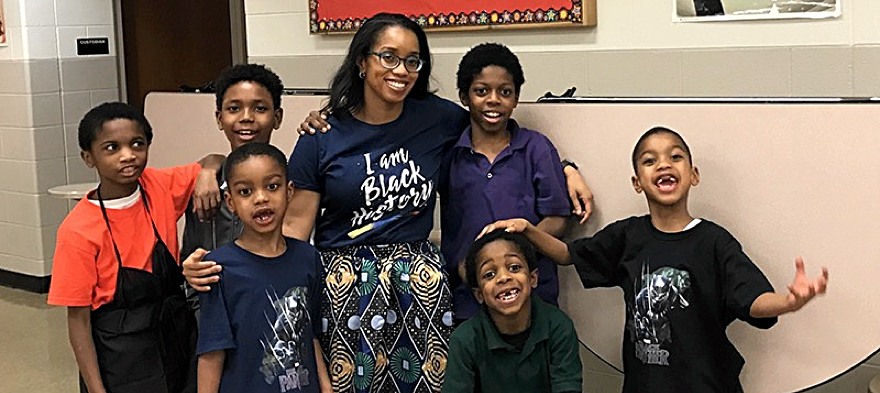
Black History Month is quickly coming to a close. This month is a time to highlight Black excellence and remind us all that Black history is part of American history. What happens when Black History Month is over? This is the conversation that many educators and school leaders need to have.
Let’s look at some common actions that take place during Black History Month and use them as a spring board to meaningful change and learning for our students.
Many educators highlight books written by Black authors or books about Black people. These books should be incorporated into the curriculum throughout the year. This is a good opportunity for a pulse check to see how many Black authors are in the curriculum. If the number is low, identify books that students enjoyed during Black History Month and add them to classroom libraries and to the curriculum. Remember, teachers are teaching standards, not books. Many of the books written by Black authors and/or features Black people can be used to teach the standards.
Another common feature during Black History Month are door decorating contests and bulletin boards featuring Black people. When the decorations come down off of the doors and the bulletin boards are replaced with different information, will students see Black people somewhere on display inside of the school? Even if a school has no Black students, Black people should be displayed. For example, if there is a bulletin board that features scientists, some of those scientists should be Black. This will help Black students feel seen, and it will help portray a positive image of Black people to non-Black students.
Black History Month is typically filled with little-known Black history facts or different Black people, who exude Black excellence, being highlighted. Black History Month should not be the only time Black people are highlighted in a positive light. Our history started before Black people were kidnapped and enslaved. Black people being enslaved should not be the focal point nor the main history students learn about Black people. Black people are more than the tragic events that have happened. We are so much more.
This is only a start. I encourage teachers and school leaders to take some time to think about what took place during Black History Month and find meaningful ways to expand those activities throughout the year.
Shawnta (Shawn-tay) S. Barnes, also known as Educator Barnes, is a married mother of identical twin boys. She navigates education from not only the educator’s perspective but also the parent’s perspective. She has been an educator for nearly two decades. Shawnta works with K-12 schools, universities, & education adjacent organizations through her education consulting business Blazing Brilliance. She is an adjunct college professor, supervises student teachers, Indy Kids Winning Editor-in-Chief, Brave Brothers Books Co-founder, & CEO, and Brazen Education Podcast host. She holds five education licenses: English/language arts 5-12, English to speakers of other languages P-12, library/media P-12, reading P-12, and school administration P-12, and she has held a job in every licensed area. Previously, she has served as a school administrator, English teacher, English learners teacher, literacy coach, and librarian. She won the 2019 Indiana Black Expo Excellence in Education Journalism Award. In 2023, she completed her doctorate in Literacy, Culture, and Language Education with a minor in Learning Sciences. She is an urban gardener in her spare time and writes about her harvest-to-table journey at gardenershicole.com. To learn more about Shawnta, visit educatorbarnes.com.
If you have a child with disabilities, you’re not alone: According to the latest data, over 7 million American schoolchildren — 14% of all students ages 3-21 — are classified as eligible for special...
The fight for educational equity has never been just about schools. The real North Star for this work is providing opportunities for each child to thrive into adulthood. This means that our advocacy...
The story you tell yourself about your own math ability tends to become true. This isn’t some Oprah aphorism about attracting what you want from the universe. Well, I guess it kind of is, but...
Your donations support the voices who challenge decision makers to provide the learning opportunities all children need to thrive.
Ed Post is the flagship website platform of brightbeam, a 501(c3) network of education activists and influencers demanding a better education and a brighter future for every child.
© 2020–2024 brightbeam. All rights reserved.